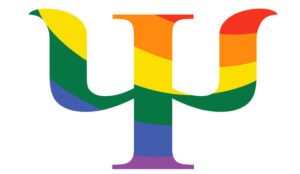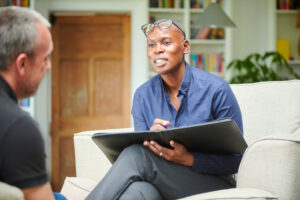There are always unique challenges to contend with when you’re a lesbian, gay, bisexual, transgendered, or queer person in the United States.
All too often, it has been downright deadly.
Matthew Shepard was a student at the University of Wyoming in 1998. Even if things are a lot better today, it definitely wasn’t a comfortable place to be gay in 1998. As a young gay man living there, Matthew had panic attacks and considered suicide, but most friends knew him as a warm, optimistic soul with an interest in politics and language and a bright future ahead of him.
That future was destroyed on the night of October 6, 1998, when two homophobic locals pretended to be gay, picked Shepard up, then drove him to a remote area outside Laramie and brutally beat and robbed him. He passed away six days later, never having regained consciousness.
Matthew’s story was not unique.
 Physical and sexual harassment are experienced at far higher rates for LGBTQ individuals than in the community at large. According to NBC news, more than half of LGBTQ Americans have suffered some form of harassment or discrimination due to their sexual orientation or gender identity. They almost constantly have to guard against stigmatization and discrimination.
Physical and sexual harassment are experienced at far higher rates for LGBTQ individuals than in the community at large. According to NBC news, more than half of LGBTQ Americans have suffered some form of harassment or discrimination due to their sexual orientation or gender identity. They almost constantly have to guard against stigmatization and discrimination.
The danger and trauma adds up to a community with a far higher frequency of mental health issues than in the general population. Those issues range from anxiety and depression to substance abuse, self-harm, and suicidal ideation. They experience rejection and confusion from a culture that too often tries to ignore them.
The Anxiety and Depression Association of America finds that between 30 and 60 percent of the LGBTQ community deals with anxiety, depression, and mental disorders on a regular basis. That’s around twice as high as heterosexual and cisgendered individuals.
These are all aspects of mental health that can benefit from qualified treatment by trained therapists.
Training for The New Psychological Specialization of LGBTQ Counseling
There are many specialty areas in psychology. From working with children and juveniles to marriage and family therapy, the psychology community has long understood that sometimes it just takes a special level of training, a deeper kind of connection, to work effectively in certain communities.
Over the past few decades, psychology professionals have started to realize that counseling for people of LGBTQ community is a new area of psychological specialization.
Once upon a time, LGBTQ therapy meant conversion therapy—forcible attempts to reprogram perfectly normal people to fit a mold stamped by a predominantly cisgendered and heterosexual society.
But the psychology profession today has turned around to become a force for good in the LGBTQ community. With the right motivations, experience, and education, psychologists who offer counseling for people in the LGBTQ community can change their lives for the better. Helping them accept who they are and who they can be, without stigma or judgement, opens up a world of self-confidence and acceptance they might never knew existed before.
The benefits of counseling for people in the LGBTQ community are obvious. All that is missing are enough students training to become psychologists for LGBTQ people. Are you ready to fill that gap?
What is LGBTQ Counseling?
Modern LGBTQ Training for Psychologists
Where Can I Get Training to Become a Psychologist for LGBTQ People?
Working at The Forefront of LGBTQ Psychological Therapy
What is LGBTQ Counseling?
 Of course, just as LGBTQ individuals are the same as any other human being, they may suffer from all the mental illness that any other person might suffer. There are bisexuals with ADHD, transgendered individuals on the autism spectrum, and lesbians with depressive disorder.
Of course, just as LGBTQ individuals are the same as any other human being, they may suffer from all the mental illness that any other person might suffer. There are bisexuals with ADHD, transgendered individuals on the autism spectrum, and lesbians with depressive disorder.
At the same time, there are other issues that only LGBTQ individuals will experience. And there are other issues that are found in the general population but which LGBTQ people are more at risk of experiencing. For example, research has found that substance use disorders and mood disorders are particularly common in sexual minority populations. That leads to higher incidences of suicide and self-harm as well.
In both cases, therapists who plan to work closely with that community will benefit from LGBTQ training for psychologists. Your training will help you address common mental disorders in LGBTQ individuals more effectively, and handle their unique issues with the professionalism and competence they deserve.
The History of LGBTQ Training for Psychologists
Psychology has a lot to make up for when it comes to the LGBTQ community. For much of the history of the profession, homosexuality and other non-normative expressions of sexual preference were treated as deviancy.
The Diagnostic and Statistical Manual of Mental Disorders, the bible of psychological assessments, listed same-sex attraction as entry “302.0 Sexual deviations (Homosexuality).”
That entry wasn’t removed until 1973. Generations of lesbians, gays, and non-binary individuals grew up being told they were abnormal, unlovable, or even evil by trained psychologists. It was not a proud era for the profession.
The truth was, counseling for people in the LGBTQ community could have been enormously valuable as they came out in society as a whole. Even a luminary like Freud had viewed homosexuality as simply a different stage of sexual development, not a vice nor an illness. But for the most part, more modern psychologists were missing in action as the community fought some of its biggest battles for acceptance and recognition.
The good news is that it’s not over yet. The benefits of counseling for people in the LGBTQ community are still big and important, and with the right training, you can do a lot of good for those individuals and for society.
By the 1980s, more and more professionals were starting to recognize the benefits of therapy for people in the LGBTQ community. The training to become a psychologist for LGBTQ people shifted from horrific conversion therapies to more supportive and positive treatments.
Today, a select group of psychology PhD programs even offer specializations in LGBTQ counseling. These doctoral-level degrees offer LGBTQ training for psychologists through specialized clinical training in psychotherapeutics for LGBTQ individuals and extensive field experience working in the LGBTQ community. Research conducted in these programs is continuing to break new ground in the benefits of counseling for people in the LGBTQ community.
More attention is being paid to issues of homophobia, heteronormativity, transphobia, and gender privilege in society as a whole, too. LGBTQ training for psychologists has a role to play in challenging bias and normalizing diversity outside of LGBTQ counseling.
Modern LGBTQ Training for Psychologists
 Today, both the psychology community and the LGBTQ community are far more tuned-in to both the benefits and techniques for LGBTQ counseling.
Today, both the psychology community and the LGBTQ community are far more tuned-in to both the benefits and techniques for LGBTQ counseling.
Modern training to become a psychologist for LGBTQ people isn’t just found in those specialized psychology degree programs. It also comes through in some of the major changes in therapy education in mainstream psychology degree programs.
The big perspective shift in the psychology community from viewing homosexuality as a mental illness to accepting it as a normal variation didn’t come along by itself. At the same time psychologists were making that mental leap, a lot of other things were going on in the mental health field to benefit therapy approaches for LGBTQ individuals.
The broader acceptance of neurodiversity in many areas of psychological research and treatment has reinforced acceptance of LGBTQ individuals among many others. The shift from viewing neurodivergence as inherently pathological to seeing societal barriers as the primary issue has opened up psychological treatments in areas such as autism and various other personality disorders.
The idea that societal norms lead to the traumas felt by LGBTQ individuals, and not their inherent sexuality and gender identity, opens up a lot of new possibilities for treatment. And the fact that psychology as a field is moving in that direction for more and more traditionally pathologized diagnoses is a boost for LGBTQ counseling skills as well.
What is a Gender Therapist?
Gender therapy is an even more specialized aspect of counseling for people of the LGBTQ community. Gender therapists focus on working with individuals who may be questioning or having difficulty with their gender identity versus cis expectations.
While gender therapists should have all the regular sets of qualifications that any trained therapist or LGBTQ counselor will have, they should also have expertise in the evolving field of gender studies. Genders and gender therapy have exploded in recent years as individuals have become more comfortable owning and expressing their identities.
The point of gender therapy is not necessarily to pin down a gender identity for people in treatment. Instead, gender analysis helps identify sociocultural and subjective factors that create gender norms. Gender therapists use that analysis and knowledge to help transgendered and non-binary people better understand themselves. They may also offer counseling for gender affirmation treatments.
What is Affirmative Therapy?
Gay affirmative psychology was developed in the 1970s to push back against the traditional perspective of homosexuality as mental illness. A generation of homosexuals had been told by society and individually that they were deviants and that something was wrong with them.
Even as the classification of homosexuality as a mental illness was removed, though, heteronormative biases in treatment remained. Viewing LGBTQ mental health through the lens of cisgender references overlooks both challenges and strengths to the LGBTQ experience.
Affirmative therapy in LGBTQ counseling flips the model on its head. It recognizes the importance of perspectives that de-pathologize the individual experience by relying on the three pillar model of positive psychology:
- Positive subjective experiences
- Character strengths
- Positive social institutions
In other words, therapists work to stress the resilience and benefits that come with LGBTQ orientations rather than focusing on the negatives.
The LGBTQ community has always been a bright spot in LGBTQ counseling. Supportive, inclusive, and fabulous, it has been a rock of support for many scared and confused LGBTQ youth long before psychology got on board. LGBTQ training for psychologists now stresses the benefits of belonging to that community.
Affirmative therapy is used in more places than just LGBTQ counseling, but there are specific tools today that make it easier. The Coming Out Growth Scale is a diagnostic tool that assesses the unique personal and social benefits that may come from an individual’s growth. The point of affirmative therapy is not to ignore the negative experiences, but to recognize and emphasize the positives that come with them.
Cultural Competency in LGBTQ Counseling
As a developing area of practice that includes many vulnerable individuals with widely varied backgrounds, LGBTQ counseling practice is a minefield for therapists who don’t have strong cultural competency skills.
Cultural competency describes the skills, values, and principles that reflect respect in interactions between individuals and the cultural and ethnic groups they come into contact with. As a psychologist, that covers a particularly broad range of cultures. Cultural competency training is a big part of psychology training today. But it has some unique twists when it comes to working with the LGBTQ community.
Language is one of the big ones. English evolved from grammatically gendered languages. It’s spectacularly poorly equipped for gender-neutral discussion. Gender assumptions are baked right in to even the most casual conversation, whether you’re bragging about your freshman psych mid-term score or assuming pronouns.
This can come up in a lot of ways you might not anticipate, so it’s important to go over your processes with a clear eye for cultural mis-steps. There’s nothing more common in American medicine than the hallowed intake form, for instance. But there’s nothing that causes more frustration for transgendered individuals than staring at a “I am a M / F (circle one)” on a piece of paperwork.
The American Psychological Association has published a guide to avoiding heterosexual bias in language, but LGBTQ counselors have to keep up with the evolution of terminology to make their patients comfortable. In fact, in some cases, the preferred term is no longer even LGBTQ, but LGBTQI (Lesbian, Gay, Bisexual, Transgender, Queer, Questioning, Intersexed) according to the National Alliance on Mental Health.
Making people comfortable is basically what cultural competency comes down to, and it’s a first step for therapists who must gain the trust of their patients. You have to show that you acknowledge and respect them as individuals, with a valid and valuable cultural standing.
Exhibiting this can be as simple as asking new patients about their pronouns and how they prefer that you address the larger community they are a part of. For example, the “Q” in LGBTQ stands for queer, but that term has a long history of pejorative use. Some people use it as a source of strength and pride, reclaiming the label. Others may still find it offensive.
Cultural competency requires that you not assume their preference or impose your own label. Instead, you’ll have to train yourself to treat individuals as complex, multicultural creatures with their own unique sensitivities and motivations.
Where Can I Get Training to Become a Psychologist for LGBTQ People?
 The field of psychology as a whole has become a much more friendly place for LGBTQ studies over the past few decades. The current ethical code from the APA and the comprehensive standards imposed by the Association’s Committee on Accreditation (COA)have turned every doctoral program in psychology into a well-aligned option for anyone going into LGBTQ counseling.
The field of psychology as a whole has become a much more friendly place for LGBTQ studies over the past few decades. The current ethical code from the APA and the comprehensive standards imposed by the Association’s Committee on Accreditation (COA)have turned every doctoral program in psychology into a well-aligned option for anyone going into LGBTQ counseling.
Still, there are definitely some programs where it will be easier for you to get that kind of specialized training than others. As was mentioned above, there are a handful of psychology doctoral programs that offer a specific focus area in LGBTQ therapy. If you can find one of them and get accepted, that’s definitely going to be your best bet.
But there are plenty of other ways to aim your education directly at becoming a qualified LGBTQ counselor, too.
Use Your Dissertation as a Specialization
A doctoral dissertation (or a doctoral project, offered as an option in some PsyD, or Doctor of Psychology, programs) is a huge part of your PhD program. Although they might only print out at 50 pages or so, you can expect to focus on the research, writing, and presentation of your dissertation for as much as two years out of the six or seven spent in the program. And those other four or five years? You’ll be spending those largely laying the groundwork for it.
If the dissertation is a big deal, it’s also your big deal. Dissertation topics are not assigned, they are chosen. You’ll work out the details with advisors but the soul of this capstone project is a topic that you will choose. And the natural choice if you are training to become a psychologist for LGBTQ people is an LGBTQ-focused topic.
Researching, studying, and putting your own spin on subjects such as androgyny in a gender binary society or the impact of internalized homophobia on satisfaction levels in gay male relationships will give you extraordinary insight into subjects important in LGBTQ counseling. And you can pursue these studies in any PsyD or PhD psychology program.
Look For Schools Near Traditional LGBTQ Communities
Field experience is considered a critical part of LGBTQ training for psychologists. Getting a license to practice clinical psychology typically takes 1,000 hours or more of supervised post-doctoral experience. That’s on top of the field experience built into your degree.
If you plan to make a career out of LGBTQ counseling, then it makes the most sense to get your hands-on training working with LGBTQ clients. To do that, you’re going to have to be in an area where you can find LGBTQ patients to work with.
Of course, there are LGBTQ individuals scattered all over the country, living and working in communities large and small. But for the same reasons the LGBTQ community has been historically psychologically vulnerable, the people in it have also tended to cluster in friendlier regions.
That’s typically in and around major urban centers. But even among big cities, there’s a gay West Coast bias! San Francisco, Seattle, Long Beach, and Portland all have concentrations of LGBTQ residents well over the national average of 4.1 percent of the population. But you can find pockets all over the country; Atlanta, for example, also comes in surprisingly high in the ranks established by the American Community Survey.
So as you are going through our State Listing of Psychology Degree Programs to find the best fit for your future therapy career, consider picking a school with close affiliations in a major LGBTQ-friendly area.
How Do I Find an LGBT Friendly Therapist?
For your post-doctoral field experience, you’re not only going to want to work in an LGBTQ-friendly area; you are also going to want to work under the supervision of an LGBTQ-friendly therapist.
Sorting out the right person for that job is definitely easier in a region where there is a larger LGBTQ community. You are way more likely to find LGBTQ counseling specialists in those areas. They have the experience working with the community to pass along the kind of skills and tips that are critical to forming your own expertise as an LGBTQ counselor.
Finding the right person for supervision is always a challenge. They not only have to have expertise in the practice area, but they also need the right personality and coaching talents to pass it along. Good communications skills are a must.
Like most talent-searches in life, the best way to find the right match is to get personal reviews from people you trust.
Working at The Forefront of LGBTQ Psychological Therapy
 With the field of psychology rapidly coming around to accept the benefits of therapy for people in LGBTQ communities combined with the higher rates of mental illness among those people, you won’t have to look far to find a job in LGBTQ counseling.
With the field of psychology rapidly coming around to accept the benefits of therapy for people in LGBTQ communities combined with the higher rates of mental illness among those people, you won’t have to look far to find a job in LGBTQ counseling.
That’s because the gap between supply and demand is huge for counseling for people of the LGBTQ community right now. The Trevor Project, a crisis intervention and suicide prevention resource for LGBTQ youth, conducted a survey in 2020 that found that more than half of LGBTQ kids who sought mental health care over the prior year hadn’t received it. The disparity was even worse in minority groups, with over 60 percent of Black, Latino, and Asian Americans reporting the same problem.
With your specialized training to become a psychologist for LGBTQ people, you won’t have any trouble stepping into that gap and getting those kids—and their older counterparts—the kind of mental health care they need and deserve.
Continuing Your LGBTQ Training for Psychologists
Your training as a therapist doesn’t stop once you are licensed and practicing. It’s going to be a life-long commitment to keeping up with new trends and developments in the field.
That is particularly true in LGBTQ counseling, which is still breaking ground on defining the variety and kinds of mental illnesses experienced in the community. New therapies and treatment methods follow right along.
If you want to be a competent and trustworthy LGBTQ ally in therapy, you will need to keep your training current throughout your career.
Maintaining your license will require a certain amount of continuing education each year, varying depending on your state, but usually around 20 hours. Some of those have to be dedicated to certain areas, such as ethics, but the rest are up to you. And that means you can put as much time into keeping your training in LGBTQ counseling current as you need.
The APA recognizes that it can be tough to find resources for education and research in LGBTQ areas. The association has dedicated staff time to the subject since 1987. Today, they offer a substantial online library with links and direct resources available to further the understanding of LGBTQ issues in modern psychology practice. It’s a great resource whether you are just starting your path to LGBTQ therapy or are already working in the field.
How Much Does a Gender Therapist Cost?
After you get the training you need to offer LGBTQ counseling, you’re probably wondering what you will be able to charge for your expertise.
There’s no hard data available on what therapists who specialize in LGBTQ counseling and gender therapy can make. The specializations are both too new and too narrow to have attracted much research.
But you can get a general idea of your earning potential by looking at the average psychologist salaries in your area.
Clinical psychology is the area of the field that gender therapy falls into, and it’s also one of the most lucrative types of psychology practice. The APA commissioned a study that looked at salaries in the field by specialty area and found that clinical psychologists earned an average annual salary of $107,183.
That’s right in line with projections from the Bureau of Labor Statistics, which found the median pay for psychologists coming in at $100,300 per year.
Those in the top ten percent of the profession, which is likely to include highly specialized practices like LGBTQ counseling, could earn greater than $132,070 per year.
On the client side, that typically means you’ll be billing well over $100 per hour for gender therapy. It’s not cheap, but hopefully you are well worth it! Some LGBTQ therapists also implement sliding scale rates, so patients with low incomes still have access to the life-changing affirmation and counseling that gender therapy can offer.
Of course, it’s not really the money that will draw you into LGBTQ counseling. It’s the challenge, the opportunity, and the difference you can make in the lives of people who have had no hope for so long.
Making sure that you are totally prepared for that challenge is the key point of your training. Getting the right training and taking it seriously will make all the difference in your career path to LGBTQ counseling.




